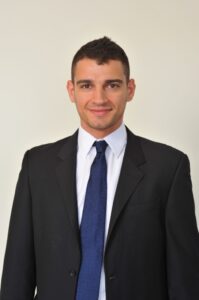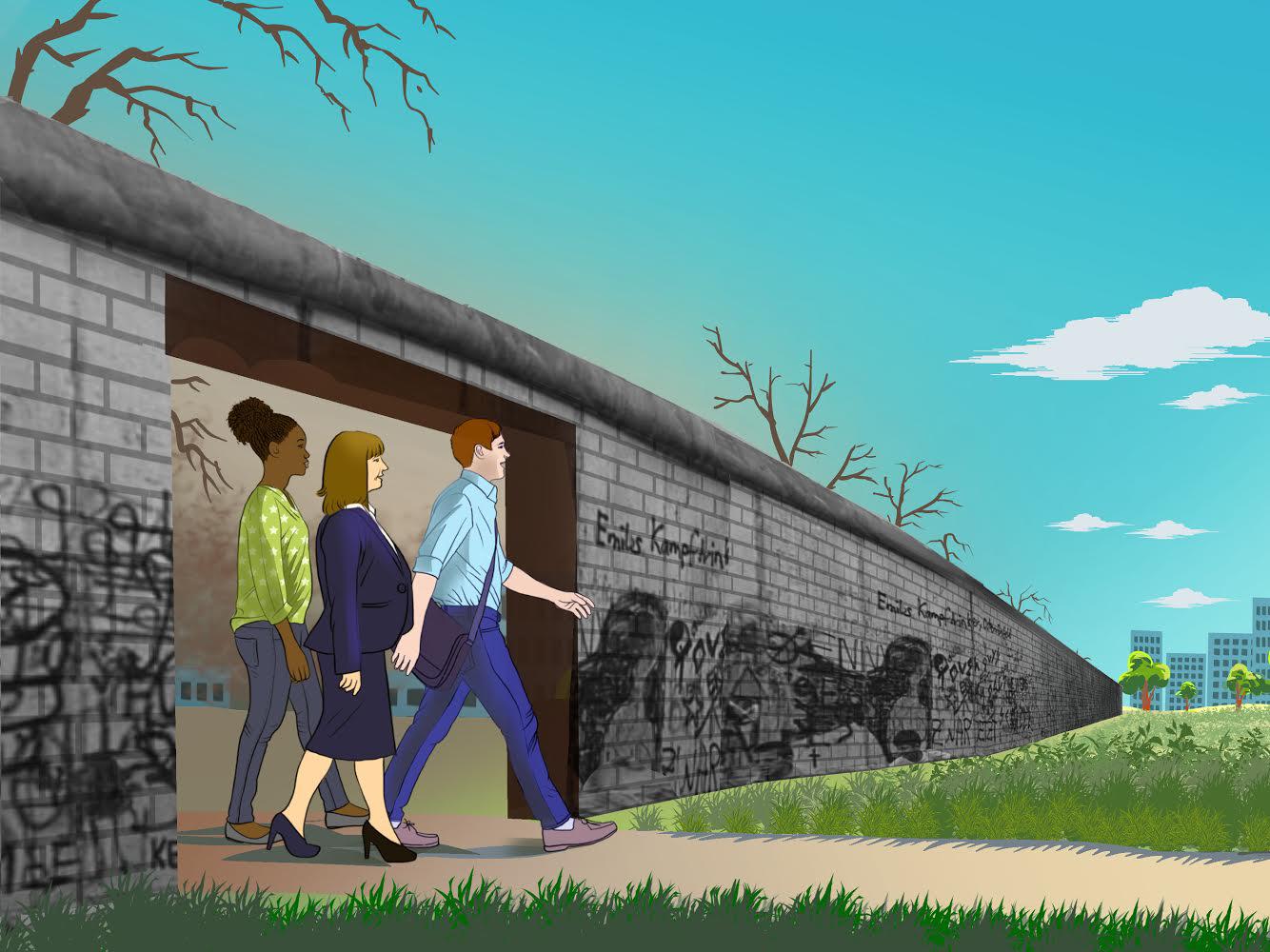In an interview with Cypriot lawyer Zacharias Poutziouris about his experience of practicing law in a globalised world, prejudices, and Cypriot cultural customs, from Josefine Antonia Schulte, Law student from Berlin, Germany
The project ABOWI- “Across Borders With Information” aims to interview lawyers from 197 countries around the world. Legal education, legal decisions, and laws – what unites lawyers worldwide? Does digitalisation influence the legal profession?

How is the digitisation of the legal profession developing in comparison to Europe, America, China, or Africa? Thanks to the Internet, we can travel virtually to every country. ABOWI – “Across Borders With Information” – travels through the internet and interviews people who are willing to share their experiences, visions, and knowledge.
Finding answers to absurd laws, for example in Cyprus: Eating a snack while driving a car is illegal? Or anyone who brings a poppy seed roll to Dubai is liable to prosecution. ABOWI asks!
The beginning: establishing initial contact
Starting with the whole interviews I decided to go backward starting at Z and not A and working my way through the states of our world. In German, Cyprus is called „Zypern“ and so on the last on alphabetic order and I made my choice. It took me a couple of days to get in touch with a Cypriot lawyer bouncing off at the secretary and so I kept calling lawyers‘ offices from my list of suggestions.
The interview

On the third day, I called the Poutziouris law firm (PLF) and to my luck, the secretary put me directly through to Zacharias Poutziouris (my interview partner).
The Poutziouris law firm is an office based in Larnaca Cyprus on the Greek side of the island and was founded by Zacharias Poutziouris father Christos Poutziouris, who is a full member of the Cypriot Bar Association since 1986. PLF is amongst others specialised in advising international clients in legal matters like corporate or administrative services. Therefore Zacharias Poutziouris seemed like an ideal interview partner and able to answer some questions regarding globalisation, language, and Cyprus as the believed tax haven.
JAS: Please introduce yourself shortly in terms of name, age, origin, and how long you have been practicing the profession of law?
Z. Poutziouris: My name is Zacharias Poutziouris, I am 33 years old and I am from Cyprus, however, I was born and raised in the United Kingdom, I have been a fully qualified lawyer in Cyprus since 2015.
1. JAS: What made you become a lawyer in the first place or might has your country of living something to do with it?
Z. Poutziouris: Becoming a lawyer was a logical decision as my father is a lawyer also. If I lived in the UK and my father had a different profession maybe I would have followed another career path.
2. JAS: What is your expertise?
Z. Poutziouris: Lawyers in Cyprus do not specialise we are expected to be competent in all areas of Law. However, my main area of practice is Commercial law and Inheritance Law.
3. JAS: How is the social recognition of a career in law in Cyprus? (E.g., in Germany the societal recognition is quite high especially for people without any contact points with lawyers. There is certainly a stereotype of the superior and rich lawyer.)
Z. Poutziouris: Cyprus is a small country. There are roughly 1 million inhabitants and about 4000 registered lawyers. So the chances are that you either know a lawyer or know someone who knows a lawyer. Overall I would say that there is still an element of prestige associated with the legal profession in Cyprus. It’s worth mentioning that the President of Cyprus is a lawyer and so are the majority of Ministers and elected officials. People’s opinions of lawyers vary depending on their experience them so it is not uncommon to hear negative comments about lawyers also.
4. JAS: What is the societal sense of justice in Cyprus?
Z. Poutziouris: Cyprus has been the centre of much attention in recent years due to the financial crisis in 2013 and allegations of money laundering. More recently the Cyprus Papers were released which was an undercover report relating to the sale of European Citizenship via Cyprus. Due to these issues and the lack of accountability of public officials the societal sense of justice is low in Cyprus which is compounded by the fact that the system of justice is very slow. E.g., it can take up to 5 years for a claim to be heard in Court.
5. JAS: What challenges as a lawyer are you facing on a day-to-day basis?
Z. Poutziouris: As mentioned above it can take a very long time for a claim to be heard which is very frustrating. Thankfully the Justice System is being reformed and e-justice is slowly being implemented which should help solve this problem.
6. JAS: You are a lawyer in Cyprus but at the same time you live in a globalised world. But how is the cooperation with lawyers and clients outside of Cyprus?
Z. Poutziouris: Generally speaking, my cooperation with other lawyers and clients around the world is very good. By utilising internet-based applications and my international background and experience, it is easy to communicate with them and facilitate good cooperation.
7. JAS: During my research, I saw that you studied in Wales. How does that influence your work as a lawyer?
Z. Poutziouris: My degree was obtained through the University of Wales however I actually studied in Cyprus (distance learning). It is not uncommon for British universities to offer their degrees in Cyprus due to the demand for British law degrees in Cyprus.
8. JAS: How internationally well-positioned are lawyers in your country in terms of language?
Z. Poutziouris: The English language is widely spoken in Cyprus and subsequently, the majority of Cypriot lawyers are very well positioned to service international clients. Cyprus is an ex-British colony and although it gained its independence in 1960 it still retains remnants of its colonial past. For instance, the legal system is based on the British Common law System. As a result, many lawyers have studied at British Universities giving them the necessary language skills to serve international clients.
9. JAS: What is the level of demand for international cases and clients in your experience?
Z. Poutziouris: From my experience, there is a high level of demand for legal services from international clients. This is a byproduct of Cyprus’ geographic location and due to the fact that it is a member of the European Union. Cyprus is also a stable nation, economically and legally, and it aims to be a hub for peace in the region. Therefore, Cyprus attracts many international clients and investors.
10. JAS: As your international client, what sort of legal advice is highly requested?
Z. Poutziouris: From experience our international clients mainly want advice relating to the Acquisition of Real Estate and/or Company Registration
11. JAS: What I was wondering and I am probably not the only one, is the belief about Cyprus being a tax haven. What is actually thereto this belief of the Cyprus tax haven?
Z. Poutziouris: That is definitely not the case. Cyprus has a fair and competitive tax regime which draws many foreign investors and businesses. For instance, Corporate Tax is set at 12.5% furthermore various tax incentives are depending on how you structure your business and where your income derives from. I think that it is fair to say that like any other jurisdiction Cyprus has been susceptible to money laundering activities however since the implementation of the 4th and 5th AML EU directive there are more checks and balances in place to deter such activities.
12. JAS: If so, what do you need to pay attention to when you want to transfer your business’s tax status to Cyprus?
Z. Poutziouris: Just briefly: It is important to note that the management and control of your business must be effected in Cyprus. Furthermore, it is necessary to have a physical presence in Cyprus which means that your business must have a local office and employees. (there are some exceptions). Each business must conform to all EU laws in relation to Anti –Money Laundering and economic substance rules.
13. JAS: How do you assess the global market in the future, in Germany you need to specialise in a specific law area at some point, do you believe it is useful and sensible to specialise in international law?
Z. Poutziouris: I think specialisation is always a good idea. It’s very sensible. It means lawyers are very good in a particular area of law which is always of benefit to the client and to the justice system overall. I don’t think I am qualified to assess the global market but in the context of legal services if lawyers strive to serve their clients‘ interests and retain the trust of the public, overall the demand for legal work will remain high with or without specialisation.
14. JAS: Our last question considers one particular law everyone on the Internet is asking if it exists and if so what it actually means? Is it illegal to eat or drink while driving a car? And what about the compliance of this extraordinary law?
Z. Poutziouris: According to rule 58 (5) of the Motor Vehicle and Road Traffic Rules as they have been amended, “While driving, drivers of motor vehicles are obliged to take every necessary measure so that their hands are free at any given time for immediate, complete, and safe control of the car. Especially the use of a telephone with the hands.”
My interpretation of the above law is that it is illegal to eat or drink while driving a car in Cyprus. Regarding compliance with this law, I think that many of my compatriots would be very upset If they were given a ticket for eating a banana on the way to work in the morning.
Conclusion: Courage, perseverance, thirst for knowledge and the right preparation lead to the goal of an interesting discussion across borders – Across Borders With Information – the journey continues!
Many thanks to my interview partner Zacharias Poutziouris for answering my questions so open and sincerely shedding light on questions of law interested people worldwide. Especially as a law student myself, his answers were quite interesting and valuable advice in terms of Poutziouris approach towards his profession. I did ask him about his most interesting case from a lawyer and human perspective but just as expected his answer was quite lawyer-like as unfortunately, he is unable to comment on any past or present case for the reason of client privilege. However, he believes that each case is interesting in its own way and as lawyers, we have to try to understand what each case demands from us both from a legal perspective and on a human level.
“For the sake of simplicity, the masculine form is used throughout the text; the […] female form is of course included ”.
V.i.S.d.P.:
stud. iur. Josefine Antonia Schulte
josefine.schulte@dr-schulte.de
Durchwahl: 030-221922040
Kontakt/Contact:
Dr. Schulte Rechtsanwalt
Malteserstrasse 170
12277 Berlin
Tel: +49 30 22 19 220 20
Fax. +49 30 22 19 220 21
Email: dr.schulte@dr-schulte.de
https://www.dr-schulte.de
About ABOWI:
Across Borders With Information – ABOWI, a interview row of Josefine trained law student from Berlin in Germany. Questions and answers: A journey around the world, which uncovers differences and prejudices. What moves the lawyers of this world? Josefine Schulte asks herself from Azerbaijan to Cyprus.
Pressekontakt/Press Contact:
Dr. Schulte Rechtsanwalt
Malteserstrasse 170
12277 Berlin
Tel: +49 30 22 19 220 20
Fax. +49 30 22 19 220 21
Email: dr.schulte@dr-schulte.de
https://www.dr-schulte.de







